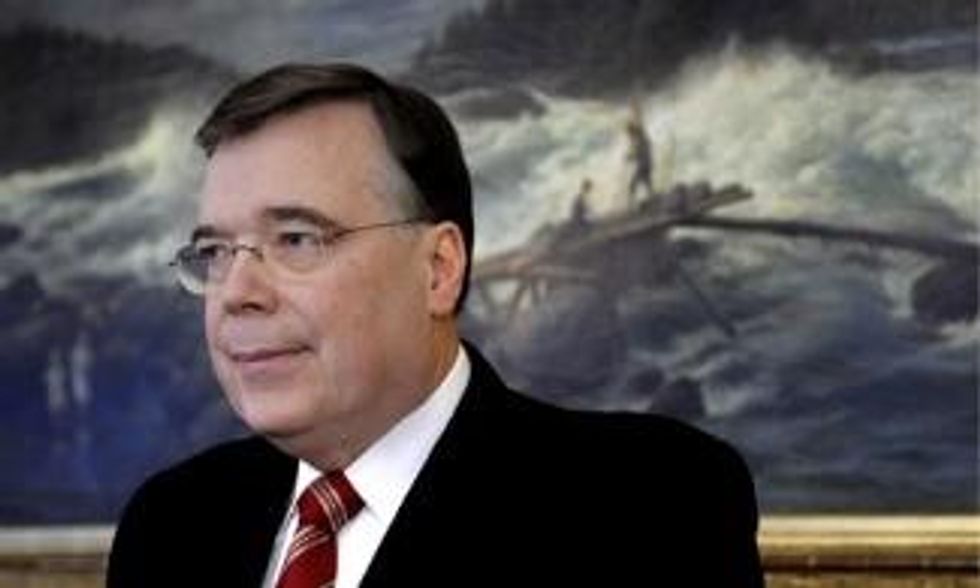As an Icelander, I found it chilling to watch the trial of my country's ex-prime minister Geir Haarde get under way. Haarde was PM of Iceland during and leading up to its economic meltdown in 2008, and is the first national leader to face charges over the global financial crisis. Watching Haarde enter the Culture House, the trial venue, brought back awful memories of October 2008 when our economy imploded, and the nation was thrust into a state of shock, fear and anger.
Yet this trial is necessary. The Icelandic collapse was not just an economic collapse - it was also a moral collapse. It was a collapse of the people's trust in its country's politicians, institutions and financial system. It revealed to the vast majority of us that we'd had no idea of the extent of the political corruption and neglect that had lurked beneath the surface of our society for decades.
This trial is not about Haarde. It is not about sending him to jail, or making sure he gets his comeuppance. In fact, most analysts believe that he will beat the charges against him; that one man cannot be held accountable for what went wrong in the years leading up to the meltdown. No, this trial is about transparency and democracy. It is about the right of the people to hear from their highest elected representative about what really happened in the months and years leading up to the greatest man-made disaster this country has known.
Bringing Haarde to trial has not been easy. He has called the charges against him "preposterous" and says he is the victim of political persecution. His political associates, mostly from inside Iceland's powerful Independence party, have tirelessly campaigned to have the charges dismissed. It has been an intense political and ideological struggle, played out both within the confines of Althingi, Iceland's parliament, and in the minds and hearts of the Icelandic people.
Iceland is a small society, and it is often difficult to separate the individual from the issue. In a nation of 320,000 people, it can feel a bit like you're sending your uncle to trial, and this complicates the matter for many of us. Moreover, there has been much debate about the fairness of holding one man accountable not just for his own mistakes, but also for the mistakes of others.
But that is not the issue. We want to know what happened. A vast amount of information and data has been collected and analysed for this trial. That information contains answers to many of the burning questions that the Icelandic people need the answers to if we are to put the shock and trauma of the economic collapse behind us.
At the beginning of the year, the current leader of the Independence party introduced a motion in parliament to have the charges against Haarde dismissed. Late last week, lawmakers voted by a narrow margin to press ahead with the trial. Had the vote gone the other way, the information and documents that will presumably surface during the trial might have been closed to the Icelandic people for decades to come. Indeed, the Independence party's vehement opposition to the trial did nothing but raise suspicion that there was something in those documents that the power elite wanted to keep hidden. With any luck, that suspicion will be eliminated.
Haarde's trial is a victory for transparency and democracy - those ideological concepts that are sweeping the world on the back of movements like the Arab spring and Occupy. His guilt or innocence is not the issue; his trial is a stepping-stone to a more open and just society. As to whether other nations should follow Iceland's example, I can only respond with a resounding yes. Let transparency, justice and truth guide the way to a new world order.


